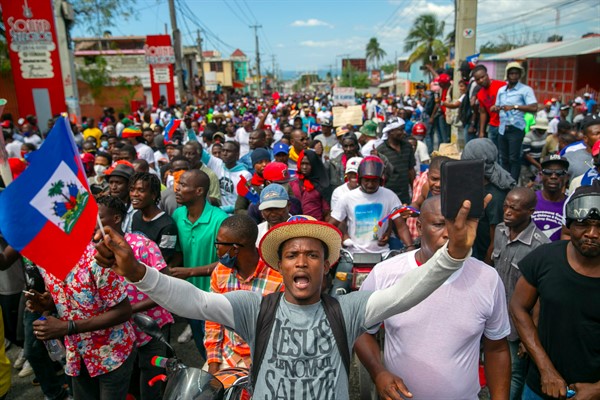Since February 2019, when President Jovenel Moise was implicated in the largest corruption scandal Haiti has ever known, the country has been mired in a violent crisis with political, economic and constitutional dimensions. Instead of heeding protesters’ demands to step down or addressing the allegations against him, Moise formed alliances with armed gangs that continue to terrorize the population and quash anti-government demonstrations.
Moise, who has been ruling by decree since July 2018 due to his inability to form a government, has also eviscerated the independent institutions that could hold him and his allies accountable. He is clinging to power even though his term in office technically ended on Feb. 7, arguing that he has more time because of a year-long delay in his swearing-in amid an electoral dispute surrounding the 2016 ballot. Now, Moise is trying to change the constitution through a referendum in order to secure immunity for himself and his cronies. Haiti’s young democracy is turning into an autocratic regime, while the economy remains paralyzed and armed gangs are free to kidnap and assassinate their opponents.
The current regime, led by the right-wing Tet Kale Party—meaning “bald-headed” in Haitian Creole—first came to power in 2011, following its victory in elections that were widely seen as fraudulent. Tet Kale’s presidential candidate was Michel Martelly, a former pop star who went by the nickname “Sweet Micky” and was known for profanity-laced tirades against his opponents, particularly the Lavalas party of ousted President Jean-Bertrand Aristide. After “winning” the elections with the backing of the United States and the United Nations, Martelly inaugurated a period of corruption, violence and incompetence that led to today’s acute crisis.

